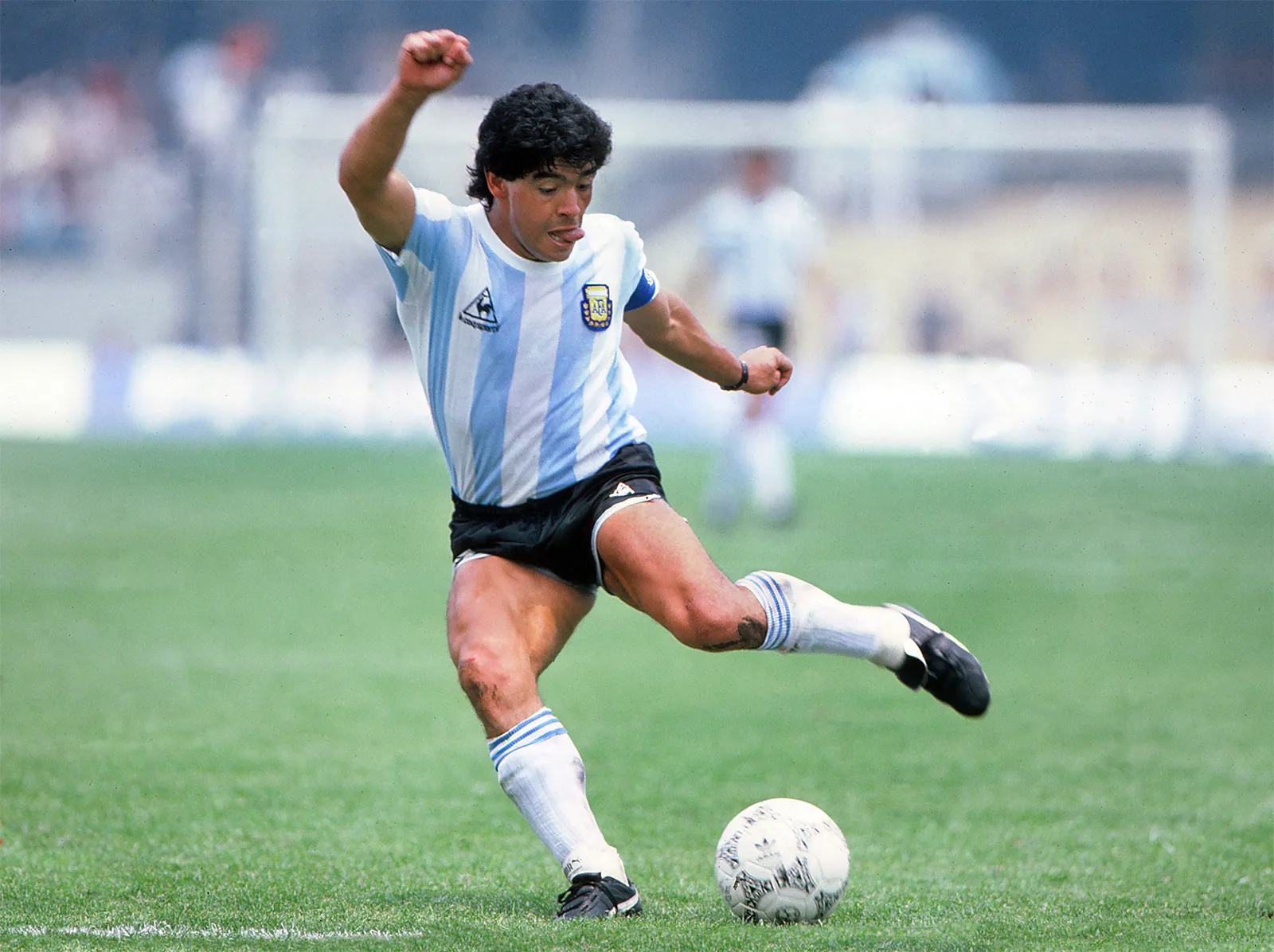esportelo.com – Diego Maradona remains one of the greatest football players in history, renowned for his extraordinary skills, charisma, and controversial life. Born on October 30, 1960, in Villa Fiorito, Argentina, Maradona’s journey from humble beginnings to global football icon continues to inspire millions around the world.
Early Life and Career Beginnings
Maradona’s passion for football emerged at a young age. He joined the youth team of Argentinos Juniors, where his prodigious talent quickly became evident. By the age of 15, he made his professional debut, captivating fans with his dribbling skills, vision, and exceptional ball control.
Rise to Stardom
In 1981, Maradona signed with Boca Juniors, one of Argentina’s most prestigious clubs. His performances earned him a transfer to FC Barcelona in 1982. Despite struggling with injuries and controversies, he showcased his brilliance, helping the team win the Copa del Rey and Spanish Super Cup.
However, it was his move to Napoli in 1984 that solidified his status as a football legend. Maradona led Napoli to their first-ever Serie A titles in 1987 and 1990, along with a UEFA Cup victory in 1989. His impact on the club and the city was profound, elevating both to new heights in the football world.
1986 World Cup Triumph
Maradona’s crowning achievement came at the 1986 FIFA World Cup in Mexico. As captain of the Argentine national team, he played a pivotal role in guiding his country to victory. His performances, including the famous “Hand of God” goal and the mesmerizing solo effort against England, remain etched in football history.
Controversies and Challenges
Despite his on-field brilliance, Maradona’s life was marked by numerous controversies. His struggles with substance abuse, legal issues, and frequent clashes with authorities often overshadowed his achievements. However, his resilience and passion for the game always shone through, earning him unwavering support from fans worldwide.
Legacy and Influence
Diego Maradona’s influence on football transcends generations. His unique playing style, combining skill, creativity, and determination, set a benchmark for future players. Beyond the pitch, he was a cultural icon, representing hope and pride for many, particularly in Argentina and Naples.
Maradona passed away on November 25, 2020, leaving behind a legacy that will forever be remembered. Statues, murals, and countless tributes across the globe pay homage to his extraordinary contributions to the sport.
Conclusion
Diego Maradona’s journey from the streets of Buenos Aires to football immortality is a testament to his unmatched talent and indomitable spirit. While his life was filled with triumphs and tribulations, his impact on the game remains unparalleled. Maradona’s name will forever be synonymous with football greatness, inspiring generations of players and fans alike.







Leave a Reply